State Veterinarian
Pet HospitalMassachusettsBostonCauseway Street
251 Causeway St, Boston, MA 02114, USA
0.0
Explore the critical functions of the Massachusetts State Veterinarian's office, located at 251 Causeway St, Boston, MA. This office plays a pivotal role in animal health, disease control, public safety, and agricultural well-being across the Commonwealth, operating within the governmental regulatory framework rather than as a traditional 'Pet Hospital' for individual animal care.
-
Overview
- (617) 626-1791
Welcome to State Veterinarian
The "State Veterinarian" in Massachusetts, located at 251 Causeway St, Boston, MA 02114, USA, with phone number (617) 626-1791, does not operate as a typical "Pet Hospital" that provides direct medical care to individual companion animals. Instead, this office serves a crucial, overarching public health and animal health regulatory function within the state government. It is part of the Massachusetts Department of Agricultural Resources (MDAR), specifically within its Division of Animal Health. The State Veterinarian's role is to protect the health and welfare of all animals in the Commonwealth, including livestock, poultry, and companion animals, and, by extension, to safeguard public health from zoonotic diseases (diseases transferable from animals to humans).
The "environment" of the State Veterinarian's office is primarily administrative and regulatory. Situated within a government building in Boston, it functions as an office responsible for policy development, enforcement, and coordination rather than a clinical setting with exam rooms or surgical suites. There are no direct customer reviews in the traditional sense, as individuals do not bring their pets here for treatment. Instead, its "clients" are often other veterinarians, agricultural producers, animal control officers, animal shelters, laboratories, and the general public, all of whom interact with the office through its various programs and regulations.
The nature of this entity means it operates on a larger, systemic scale, focusing on prevention, surveillance, and control of animal diseases across the entire state. Its mandate is to ensure the health and safety of the animal population and the integrity of the food supply, contributing to public health and the economic viability of the agricultural sector. The daily operations involve extensive record-keeping, policy implementation, emergency preparedness, and inter-agency collaboration with federal, state, and local entities like the USDA, Department of Public Health, and local animal control.
The services provided by the Massachusetts State Veterinarian and the Division of Animal Health are broad and impactful, distinct from a typical pet hospital's offerings. They include:
Animal Disease Surveillance and Control: This is a core function. The office monitors, investigates, and responds to outbreaks of infectious and contagious animal diseases, including those that could affect human health (zoonotic diseases). This involves tracking reportable animal diseases and implementing control measures to prevent their spread.
Rabies Control Program: The State Veterinarian plays a significant role in Massachusetts' rabies control efforts, often working with local health departments and veterinarians to ensure proper vaccination protocols, manage bite incidents, and implement quarantine procedures.
Animal Import and Export Regulations: The office establishes and enforces health requirements for animals entering or leaving Massachusetts to prevent the introduction or spread of diseases. This includes overseeing health certificates for livestock, poultry, and even companion animals traveling interstate or internationally.
Livestock Health Programs: Dedicated programs exist to maintain the health of livestock (cattle, swine, sheep, goats, poultry, etc.), ensuring their well-being and the safety of animal products for consumption. This involves disease testing, herd health management, and overseeing livestock markets.
Animal Welfare and Sheltering Oversight: The Division of Animal Health, under the State Veterinarian's guidance, licenses and inspects animal shelters and rescue groups within Massachusetts and those that import animals into the state. They ensure compliance with regulations (e.g., 330 CMR 30.00 for animal shelters and rescues) concerning animal health, safety, and welfare, including vaccination, testing, behavioral observations, and spay/neuter requirements before adoption.
Pet Shop Licensing and Inspection Program: Similar to shelters, pet shops are regulated and inspected to ensure the health and humane treatment of animals sold to the public.
Emergency Preparedness and Response: The office is involved in developing and implementing plans for animal health emergencies, such as foreign animal disease outbreaks, ensuring a rapid and coordinated response to protect both animal and public health.
Animal Disease Traceability (ADT): This program focuses on tracking animals through unique identification, movement records, and testing data to quickly locate animals at risk during a disease outbreak. This includes both livestock and, to some extent, companion animals.
Collaboration with Veterinarians: The State Veterinarian's office provides guidance and collaborates with private practice veterinarians on reportable diseases, regulatory compliance, and best practices for animal health and public safety.
Public Education and Awareness: While not a primary service, the office provides information and resources to the public, animal owners, and stakeholders regarding animal health, disease prevention, and relevant regulations.
Municipal Animal Inspectors Program: The State Veterinarian oversees municipal animal inspectors (MAIs), who are local officials responsible for tasks like managing rabies quarantines, verifying import permits, and conducting annual livestock inventories.
The State Veterinarian's office is distinguished by its unique governmental role and responsibilities:
Regulatory Authority: Unlike private veterinary practices, this office has the authority to create and enforce regulations pertaining to animal health, disease control, and welfare across the entire state.
Public Health Focus: A primary emphasis is on protecting public health by preventing and controlling zoonotic diseases and ensuring the safety of the food supply from animal sources.
Disease Prevention on a Grand Scale: Its work is about managing animal populations and their health at a macro level, rather than treating individual animals, though its policies directly impact the care individuals receive.
Emergency Response Coordination: It plays a critical role in coordinating responses to large-scale animal health crises, working with various agencies and stakeholders.
Oversight of Other Animal Industries: The office regulates and inspects a wide range of animal-related operations, including farms, dairies, poultry facilities, livestock markets, shelters, rescues, and pet shops.
Policy Development: The State Veterinarian is instrumental in developing and updating policies and regulations that govern animal health and welfare throughout Massachusetts.
The "promotional information" for a state government office like the State Veterinarian is typically less about marketing services to individual consumers and more about publicizing its mandate, regulations, and resources. Information is generally disseminated through the official Mass.gov website for the Department of Agricultural Resources, particularly the Division of Animal Health section. This includes:
Official Website: The primary source for information on animal health regulations, import/export requirements, reportable diseases, and programs. It provides access to forms, guidelines, and contact information for specific programs.
Contact Information: The phone number (617) 626-1791 is for the general office, and specific contact details for various programs or staff within the Division of Animal Health (e.g., Chief Veterinary Health Officer, Animal Health Inspectors) are typically listed on the MDAR website.
Press Releases and Public Advisories: The office issues public alerts and press releases regarding animal disease outbreaks, new regulations, or public health concerns related to animals.
Educational Materials: They may provide informational brochures or online resources for veterinarians, farmers, and the public on topics such as biosecurity, disease prevention, and animal welfare standards.
Accessibility is via public transport or car to their Boston office, though direct interaction for most citizens would be through phone or online resources, or indirectly through their local veterinarians, animal control officers, or shelters. The office does not directly engage in "sales" of goods or services in the commercial sense, but rather provides regulatory oversight, public services, and information critical to the health infrastructure of Massachusetts' animal population.
State Veterinarian Location
251 Causeway St, Boston, MA 02114, USA
Reviews
Pet Hospital
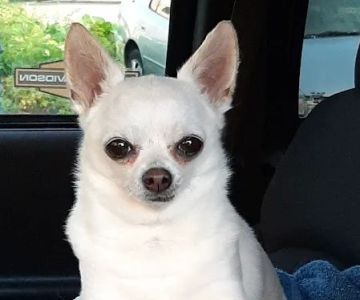 Enfield Animal Hospital
Enfield Animal Hospital
26 Oliver Rd, Enfield, CT 06082, USA
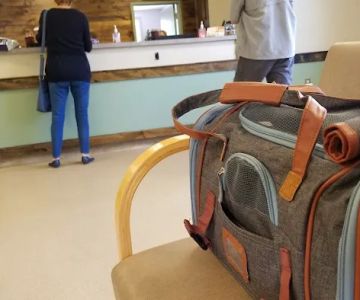 Suffield Veterinary Hospital
Suffield Veterinary Hospital
577 East Street S, Suffield, CT 06078, USA
 Suffield Veterinary Hospital: Anita Sabellico, DVM
Suffield Veterinary Hospital: Anita Sabellico, DVM
577 East Street S, Suffield, CT 06078, USA
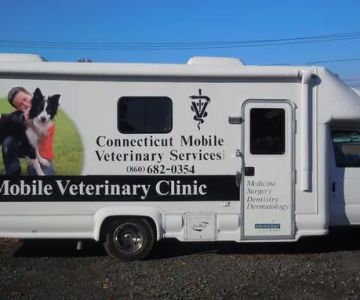 Connecticut Mobile Veterinary Services, LLC
Connecticut Mobile Veterinary Services, LLC
6 Newberry Rd, East Windsor, CT 06088, USA
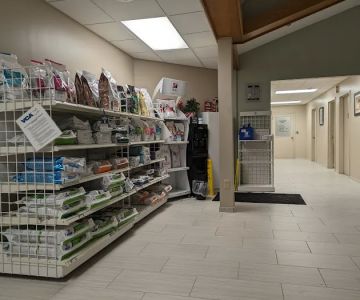 VCA Valley Animal Hospital
VCA Valley Animal Hospital
39 Patria Rd, South Windsor, CT 06074, USA
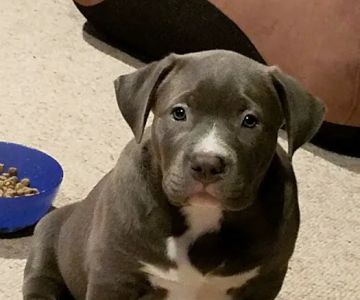 River Valley Animal Center
River Valley Animal Center
616 South St, Suffield, CT 06078, USA
